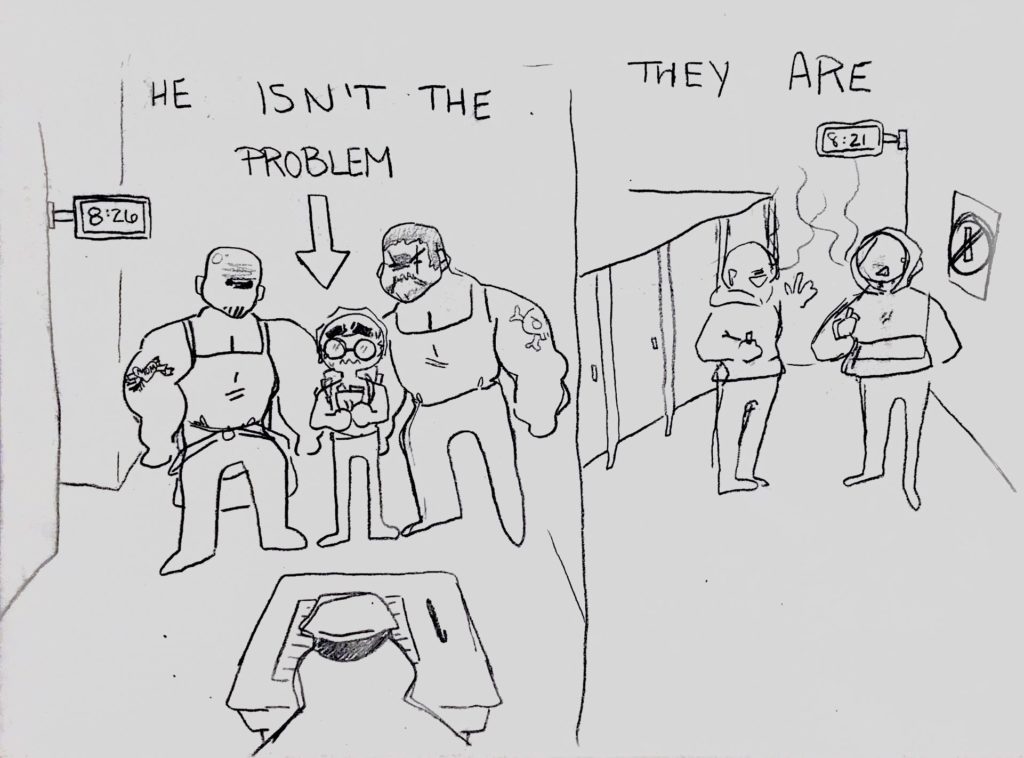Not All Tardies Are Created Equal

There are several hard to control factors that can inhibit arriving to school on time: the traffic on McCreary, parking lot chaos, and getting behind the group of kids who walk at a pace of a mile an hour.
This can lead to a homeroom tardy, which should not be held to the same standard as a passing tardy. Too many students are being punished for being late to homeroom, which is much less severe than being late for class time.
Occasional student tardiness is inevitable when dealing with teenagers.
This is part of why homeroom is beneficial, so that when students do have the occasional tardy, they are missing this time rather than more productive class time.
Since the start of the new semester, the administration has been calling down students who have violated the attendance policy. According to the Code of Acceptable Behavior and Discipline linked in the “student” category of the OPS website, “Any pupil who has been absent from school without valid excuse for three (3) days or more, or tardy without valid excuse on three (3) days or more, is a truant.” The student handbook does not outline the consequences for specific numbers of tardies.
The severity of the tardy is irrelevant. A student who has woken up late and lazily driven to school after stopping off for breakfast at 9:30 is being punished the same as a student who has encountered unlucky traffic, arrived at 8:24, and could not walk to their third floor homeroom in time.
It doesn’t take a genius to know that these violations aren’t the same, and need to be distinguished in policy. The tardy policy should be altered so that we are punishing the students with the problems, and not taking productive students out of class to get even more behind on their classwork.
AP is designed for students who need to be punished by being taken out of class, not taking students who have missed school to miss even more.
Our solution is a dual policy: one for each level of tardy.
Being late to class because of passing shows that you are off task and doing something you shouldn’t be doing. On the other hand, getting to school and being slightly late to homeroom can easily be justified by factors outside of the student’s control.
There should be a specific amount of separate homeroom tardies that result in a non-AP punishment, such as detention. A student should be allowed to have more of these minor homeroom tardies than passing tardies before they see serious punishment.
This is becoming a problem because punishment is being given to good students who have no reason to be served the same sentence as those who get in fights, curse at teachers, juul at school, etc.
For actual passing tardies that result from misbehavior, a more sturdy punishment is justified.
While a disciplinary tardy policy needs to be in place to get kids to school on time, a larger problem arises when students are getting pulled out of their important classes (especially the high workload and/or advanced level ones) to go serve their time in AP.
We understand that students must be taught that being on time matters. In the real world workforce, most employers won’t fire you for being a few minutes late a few times. On the contrary, a continued violation of immaturity is something that will and should be enforced.
There is no reason why our tardy policy, which is in need of revision, needs to be the most harshly enforced rule in the school.



all students are lazy so they just do their phone and be tardy